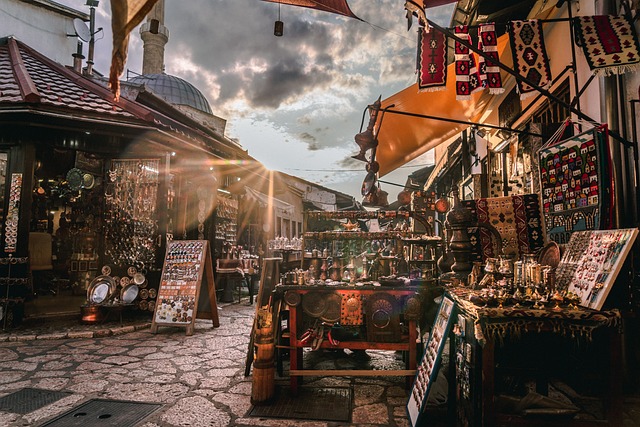Cultural Immersion Experiences: Embracing the World through Authentic Encounters

Cultural immersion experiences have emerged as transformative journeys that allow individuals to go beyond the surface and truly understand diverse societies. Cultural immersion involves engaging with local communities, traditions, and customs, providing participants with a unique opportunity to experience the world from a different perspective.

This article delves into the significance of cultural immersion experiences, their various forms, preparation tips, challenges, and the impact they have on fostering global citizenship. By immersing ourselves in foreign cultures, we can cultivate empathy, understanding, and a profound appreciation for the richness of human diversity.
Defining the Concept

Cultural immersion can be defined as the process of fully engaging with and participating in a foreign culture, transcending the role of a mere observer. It involves living, working, or studying in a different country or community for an extended period, embracing local customs, traditions, and language. The goal is to gain an intimate understanding of the culture, fostering meaningful connections and transcending the barriers of language and nationality.
Key Elements of Cultural Immersion
Cultural immersion is not just about visiting a new place; they are about truly connecting with the local culture and people. These experiences go beyond surface-level interactions and require a deep commitment to understanding and appreciating the intricacies of a foreign culture. Here are some key elements that are essential for a meaningful and enriching cultural immersion:
1. Immersive Interactions: At the heart of cultural immersion lies the genuine interaction with the local community. It involves engaging in everyday activities with locals, such as shopping at local markets, attending community events, or sharing meals together. By participating in their daily routines, participants gain insight into the nuances of the culture and build authentic relationships with the people.
2. Respect for Local Customs and Traditions: Respecting and embracing the customs and traditions of the host culture is vital. This means being mindful of cultural norms, etiquette, and practices. Understanding the significance of traditional rituals and festivals and actively participating in them can deepen one’s appreciation for the culture and its heritage.
3. Active Listening and Observing: Cultural immersion requires keen observation and active listening. Participants should be attentive to the subtleties of communication, body language, and social cues. By being receptive and curious, they can better understand the cultural values and unspoken rules governing the community.
4. Open-Mindedness and Adaptability: To fully immerse oneself in a different culture, an open mind and adaptability are essential. Embracing new perspectives, ideas, and ways of life with curiosity and without judgment can lead to personal growth and transformation.
5. Language Proficiency: Language plays a pivotal role in cultural immersion. While fluency is not a prerequisite, learning basic phrases and expressions in the local language shows respect and can facilitate deeper connections with locals. Being able to communicate effectively enhances the overall experience and encourages meaningful exchanges.
What Are the Benefits of Cultural Immersion?
Cultural immersion experiences have far-reaching benefits that extend beyond just traveling to a new destination. These transformative journeys offer participants a unique opportunity to broaden their horizons, gain new perspectives, and develop valuable life skills. Let’s explore the myriad advantages of cultural immersion:
- Enhanced Cultural Awareness: Cultural immersion provides an in-depth understanding of the host culture’s history, traditions, beliefs, and social norms. By directly experiencing the culture rather than relying on second-hand information, participants gain a profound appreciation for the diversity of human experiences.
- Breaking Down Stereotypes and Prejudices: Preconceived notions and stereotypes often arise from ignorance and a lack of exposure to other cultures. Cultural immersion challenges these biases by showcasing the shared humanity and unique perspectives of individuals from different backgrounds, fostering empathy and breaking down barriers.
- Personal Growth and Empathy Development: Stepping out of one’s comfort zone and immersing oneself in a foreign culture can be a transformative experience. Participants learn to adapt to new environments, overcome challenges, and embrace uncertainties, leading to personal growth and increased self-confidence. Engaging with people from different walks of life cultivates empathy and a genuine appreciation for the struggles and triumphs of others.
- Language Acquisition: Living and interacting with native speakers is an unparalleled language learning opportunity. Through daily conversations and interactions, participants can significantly improve their language skills, making communication more effective and meaningful.
- Expanding Global Perspective: Cultural immersion opens the door to a broader global perspective. By experiencing different cultures, participants gain insights into international issues, global challenges, and the interconnectedness of the world. This expanded worldview fosters a sense of global citizenship and encourages a more informed approach to global affairs.
- Deeper Understanding of Global Issues: Being immersed in a different culture provides a firsthand perspective on global issues, such as poverty, inequality, and environmental concerns. This exposure allows participants to grasp the nuances and complexities of these challenges, inspiring them to take action and make positive contributions to the global community.
The Impact of Cultural Immersion on Global Citizenship
Global citizenship is a concept that transcends national borders and emphasizes the interconnectedness of all individuals as members of a global community. Cultural immersion experiences play a significant role in shaping and fostering global citizenship by promoting understanding, empathy, and a sense of shared responsibility for the well-being of the world.
These experiences have a profound impact on individuals, empowering them to become active, compassionate, and informed global citizens. Let’s explore the key ways in which cultural immersion influences global citizenship:
1. Fostering Cultural Sensitivity and Respect: Cultural immersion exposes individuals to the richness of diverse cultures, encouraging them to appreciate and respect the differences that make each community unique. Through authentic interactions with people from different backgrounds, participants develop cultural sensitivity, which is crucial for fostering mutual understanding and harmonious coexistence in an increasingly interconnected world.
2. Nurturing Empathy and Compassion: By immersing themselves in a foreign culture, individuals gain firsthand experiences of the challenges and joys faced by people in different parts of the world. This firsthand exposure cultivates empathy and compassion, allowing global citizens to empathize with the struggles and aspirations of others, irrespective of geographical boundaries.
3. Encouraging Cross-Cultural Communication: Cultural immersion requires individuals to navigate through different communication styles, languages, and cultural norms. Engaging in cross-cultural communication fosters the ability to bridge divides and find common ground, promoting effective dialogue and collaboration in addressing global issues.
4. Inspiring Advocacy and Social Responsibility: Experiencing the realities of communities facing social, economic, or environmental challenges can ignite a passion for advocacy and social responsibility. Global citizens, shaped by cultural immersion, are more likely to actively engage in efforts to address issues such as poverty, inequality, climate change, and human rights violations.
5. Embracing Sustainable and Responsible Practices: Cultural immersion experiences often emphasize responsible and sustainable tourism practices that prioritize the well-being of local communities and the preservation of natural resources. Global citizens learn the importance of making ethical choices and minimizing their impact on the environment while respecting the cultural heritage of the places they visit.
Embracing Cultural Immersion: How to Immerse Yourself
Cultural immersion is an enriching experience that allows individuals to fully embrace a foreign culture, breaking down barriers and fostering genuine connections with local communities. To make the most of this transformative journey, here are some practical ways to immerse yourself in a culture:
Live with Local Host Families
- Stay with a local host family to experience daily life and customs firsthand.
- Engage in conversations, participate in family activities, and share meals with your host family.
- Learn about their traditions, values, and way of life.
Learn the Language
- Take language classes or use language learning apps to become familiar with the local language.
- Practice speaking with locals, even if you’re not fluent.
- Being able to communicate in the local language enhances your cultural immersion experience.
Engage in Local Festivals and Celebrations
- Participate in traditional festivals, religious events, and cultural celebrations.
- Observe local rituals and customs, and join in the festivities with enthusiasm.
Volunteer with Local Organizations
- Contribute to the community by volunteering with local NGOs or charities.
- Work on projects that align with the community’s needs and values.
- Volunteering offers a deeper understanding of local challenges and opportunities for positive impact.
Try Local Cuisine
- Sample traditional dishes and street food to savor the flavors of the culture.
- Visit local markets, food stalls, and restaurants to immerse yourself in the culinary delights.
By living and engaging authentically with local communities, learning the language, participating in local events, and respecting traditions, individuals can immerse themselves in a culture, fostering understanding, empathy, and lasting memories. Embrace the journey with an open heart, and cultural immersion will reward you with transformative experiences that shape your perspective and enrich your life.



